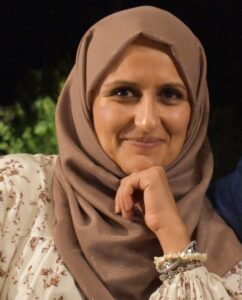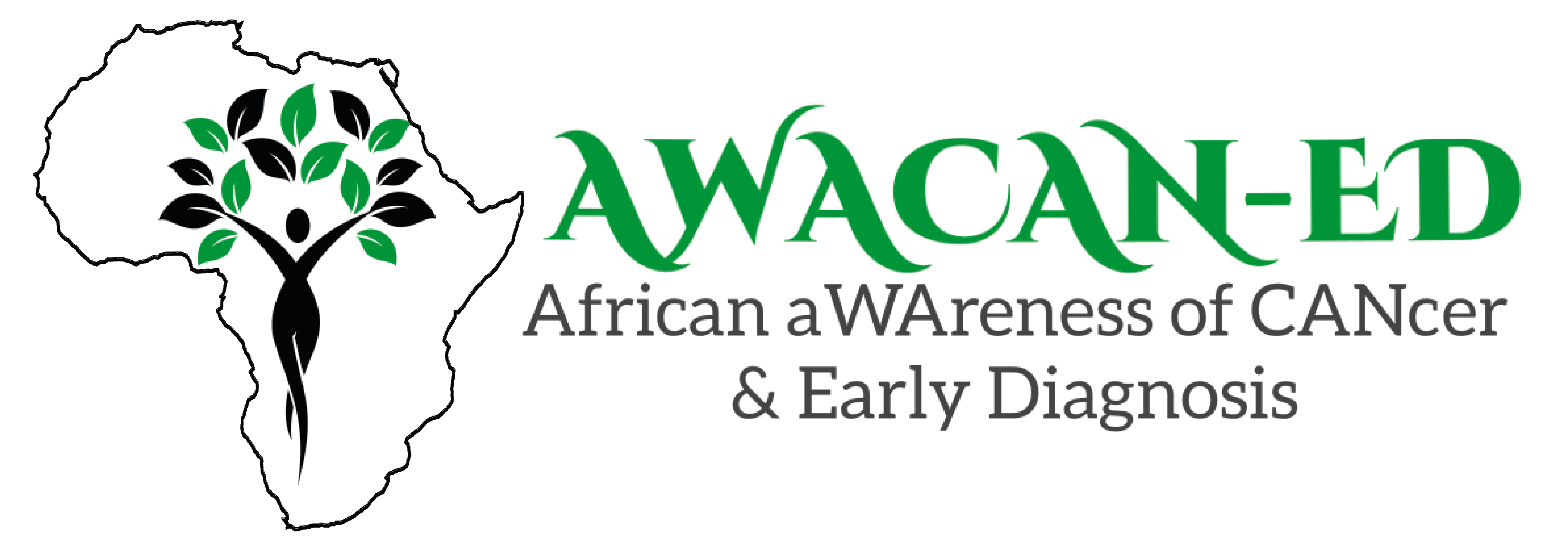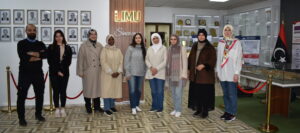Balancing Meaning and Respect: Challenges in Translating the AWACAN Tool for Arabic Speakers
Dr. Abeir El Mogassabi, a lecturer and researcher at the Libyan International University, shares her team’s experience of adapting the AWACAN tool for use with Arabic-speaking communities.
In Libya, as with other developing countries, early diagnosis of cancers depends largely on the people’s awareness of the early signs and symptoms of the disease [1]. This is because of limited national cancer prevention measures such as periodic screening programs for some cancers and vaccination programs in the case of cervical cancer [2,3,4]. To my knowledge, there is no validated tool to assess the level of female awareness of breast and cervical cancers in the Arabic language. Therefore, with my team at the Libyan International University (LIMU), we decided to use the AWACAN tool to assess cancer awareness among Libyan women.
Balancing Meaning and Respect
Due to religious beliefs and cultural values, most Arab communities are classified as conservative communities. Therefore, working on developing or translating any questionnaire into Arabic requires full awareness of the sensitive issues in the community. As our aim in the case of the AWACAN tool was to translate a questionnaire to be used by Arabic-speaking communities, we had to consider these requirements while making sure that any modifications would not affect the validity of the questionnaire.
Breast Cancer Questions
The only challenging question in this section was the alcohol consumption question. It is well known that alcohol consumption is not permitted for Muslims, therefore we were not sure how to deal with this question. It was interesting that the format of the question in the third person made it more acceptable and it did not sound insulting when used with an Arabic audience. Therefore, we decided not to make changes to any of the questions in the Breast cancer section.
Cervical Cancer Questions
The Cervical Cancer Knowledge of Risk Factors section was more challenging, as questions were more sensitive, and even though they followed the third-person questioning format in the original questionnaire, we noticed that the questions sounded disrespectful when translated into the Arabic language, hence, some careful modifications were required. For example, it was not possible to use the term “sexual partner”, since in Libya, as in many other Arabic countries, having sexual activity outside marriage is considered a crime by law (Law No. 70 of 1973) [5]. It is also forbidden religiously and unacceptable socially. Instead, we used “husband” in all the questions including information about sexual relationships. Also the question of having sexual activity at an early age was replaced with marrying at a young age, and having more than one sexual partner was modified to marrying twice or more.
We anticipate that the primary objective of the questionnaire will not be compromised by these changes, as the information required from the participants was about their awareness of the connection between the behaviour and the disease risk, whether this behaviour was within the marriage framework or not. However, while the focus was avoiding offence, linking sexual activity with early marriage may potentially normalize early marriage as a socially accepted context for sexual activity and could obscure the health risks associated with early sexual activity for girls.
Aims of our Work
Through this careful translation process, we aim to achieve the following:
- Validated tool for Arabic speakers: The culturally adapted AWACAN tool will empower healthcare professionals across Arabic-speaking countries to assess women’s cancer awareness effectively while protecting local values.
- Improved cancer prevention: By identifying knowledge gaps, the tool will guide the development of targeted health promotion programs, ultimately leading to earlier diagnoses and better health outcomes.
- Cross-country comparisons: The standardized nature of the tool will facilitate comparisons between different Arabic-speaking regions, and other countries enabling a broader understanding of cancer awareness patterns and informing regional healthcare strategies.
Our work contributes to bridging the language gap in healthcare, paving the way for more informed and culturally sensitive cancer prevention efforts worldwide and by sharing our experiences, we hope to encourage further dialogue and collaboration in creating culturally appropriate healthcare tools that empower individuals and communities worldwide to stand against cancer.
References
- Bruni L, Albero G, Serrano B, Mena M, Collado JJ, Gómez D, Muñoz J, Bosch FX, de Sanjosé S. ICO/IARC Information Centre on HPV and Cancer (HPV Information Centre). Human Papillomavirus and Related Diseases in Libya. Summary Report 10 March 2023. [Date Accessed Mar 1, 2024]
- Boder JM, Elmabrouk Abdalla FB, Elfageih MA, Abusaa A, Buhmeida A, Collan Y. Breast cancer patients in Libya: Comparison with European and central African patients. Oncol Lett. 2011 Mar;2(2):323-330. doi: 10.3892/ol.2011.245. Epub 2011 Jan 20. PMID: 22866085; PMCID: PMC3410567.
- Ermiah E, Abdalla F, Buhmeida A, Larbesh E, Pyrhönen S, Collan Y. Diagnosis delay in Libyan female breast cancer. BMC Res Notes. 2012 Aug 21;5:452. doi: 10.1186/1756-0500-5-452. PMID: 22909280; PMCID: PMC3542159.
- Erashdi M, Al-Ani A, Mansour A, Al-Hussaini M. Libyan cancer patients at King Hussein Cancer Center for more than a decade, the current situation, and a future vision. Front Oncol. 2023 Jan 26;12:1025757. doi: 10.3389/fonc.2022.1025757. PMID: 36776359; PMCID: PMC9911041.
- United Nations ESCWA, UNFPA, UN WOMEN, UNDP. LIBYA Convention on the Elimination of All Forms of Discrimination against Women (CEDAW) [Internet]. 2019. Available from: https://www.undp.org/sites/g/files/zskgke326/files/migration/arabstates/Libya.Summary.19.Eng.pdf
 Dr. Abeir El Mogassabi is a Lecturer and researcher based in Benghazi, Libya. She holds a PhD in Nutritional Epidemiology from the University of Sheffield (2022). Her passion lies in public health research, particularly in exploring the impact of lifestyle and environmental factors on population health, particularly within the Libyan context.
Dr. Abeir El Mogassabi is a Lecturer and researcher based in Benghazi, Libya. She holds a PhD in Nutritional Epidemiology from the University of Sheffield (2022). Her passion lies in public health research, particularly in exploring the impact of lifestyle and environmental factors on population health, particularly within the Libyan context.


